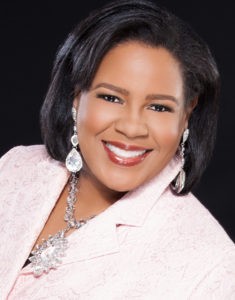Christians who attend Cooperative Baptist Fellowship churches are significantly less racist than most Americans and even less so than Catholics and other Protestants, according to a soon-to-be released survey conducted for the Fellowship by Public Religion Research Institute.
PRRI found that CBF Baptists registered 0.16 on the institute’s Racism Index, with 1.0 being the highest — and worst — score possible. That compared to white evangelicals at 0.78, white Catholics at 0.72, white Protestants at 0.69 and Black Protestants at 0.24. On average, all Americans rated 0.57 on the index.
“We scored incredibly low compared to others,” CBF Director of Advocacy Stephen Reeves said during a General Assembly workshop in Dallas the last week of June. “It came out better than I thought.”
PRRI founder and CEO Robert P. Jones created the index as part of his 2020 book, White Too Long: The Legacy of White Supremacy in Christianity. It was designed to move past surface issues on race to examine attitudes that inform structural racism and injustice.

Kasey Jones
For CBF, PRRI surveyed a representative sample of 1,700 CBF clergy and membership — mostly Southern and white Baptists, reflecting the racial, geographic and demographic makeup of the Fellowship, said workshop co-presenter Kasey Jones, CBF associate coordinator for outreach and growth. She added that full details of the poll, which was conducted in fall 2021, will be released “in the near future.”
In addition to the index, the PRRI survey examined a range of racism and social justice issues, including congregational involvement in racial healing, ministry to immigrants and refugees, and the degree of openness to Black leadership among majority-white congregations.
Reeves and Kasey Jones said the drop-off between those who said they want more people of color attending their churches, versus those who want to see that color in the pulpit, is noteworthy.
PRRI found that among all respondents surveyed, 94% wanted more color in the pews, but only 88% supported calling people of color to leadership. Among whites alone, the drop-off was from 95% to 89%.
“It’s tokenism,” Jones said. “They want to tell people that they have people of color at church.”

Stephen Reeves
If Black ministers are called to leadership, they must be given the internal and external support needed to succeed, she said. “Black folks are not offered the opportunity to make mistakes and recover.”
When respondents were asked to describe their churches’ ongoing involvement in racial repair work, 30% cited internal actions, such as book clubs, while 17% referenced community engagement and 15% mentioned relationship building. “Nothing” was the answer for 21%.
Participants also were asked to describe the various ways their churches could improve in those categories. Building relationships (81%), community engagement (82%) and internal action (81%) were just ahead of the 79% who claimed “nothing.” Fostering an “all are welcome” sentiment (59%) and Scripture reading and teaching (30%) were other options cited for bringing about more racial healing.
Racial reconciliation, at 68%, and racial justice, at 66%, also were identified as actions churches should embrace, PRRI reported.
Reeves explained that, in white churches, racial reconciliation usually refers to finding ways to “forgive and forget” racial injustices, while racial justice refers to seeking to change the underlying issues behind racism.
Reeves explained that, in white churches, racial reconciliation usually refers to finding ways to “forgive and forget” racial injustices, while racial justice refers to seeking to change the underlying issues behind racism.
“The 68% wanting reconciliation is not bad,” Jones added. “But it’s just a beginning. We can celebrate that, but we want to move beyond that.”
Other high-priority issues included addressing poverty (82%), hunger (81%) and homelessness (68%). Those concerns were followed by ministry to refugees (62%), immigrants (61%), high-quality public education (63%), and human trafficking (64%).
Reeves said the survey will not be used to reprioritize CBF advocacy work. Jones explained the Fellowship will keep to its existing, long-term commitments, such as combating payday lending — despite how they score in a survey.
But the PRRI data will fuel the expansion of ongoing advocacy, repair and inclusion efforts on matters of race, which Jones compared to the battle between David and Goliath.
“CBF has been holding the line for 30 years, but not going further. Now, David is coming to take it to the next level,” she said.
Reeves also cautioned against over-celebrating the low racism index score. The number should instead inspire CBF and its partner churches to keep moving forward on racial justice work, he said.
The number also is a reminder that Fellowship Baptists and their congregations often stand alone in their communities on matters of racial and social justice. “That’s a very isolating place to be,” he said.
And that can also be a very demoralizing and depressing place to be, Jones said. “But I hope you understand, you are not alone. You don’t have to sit in that emotion.”
Related articles:
To heal racism, seek atonement before reconciliation, authors say
Facing white Christianity’s role in the Jan. 6 insurrection | Opinion by Robert P. Jones


